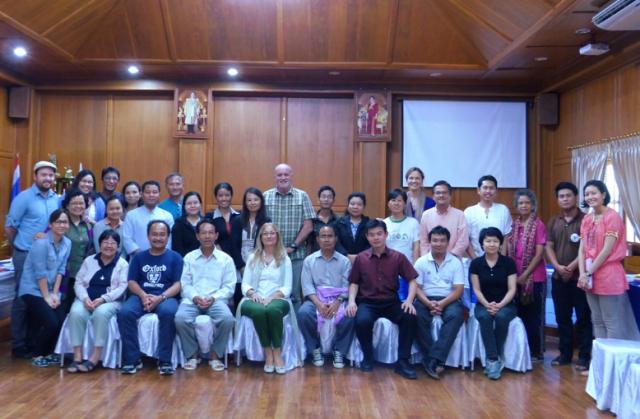Since the historic elections in November 2015, there has been a wave of optimism for national reconciliation, which may allow for Burmese refugees who fled to camps on the Thailand-Myanmar border decades ago to return.
The elections were the first national vote in Myanmar since a nominally civilization government was established in 2011, concluding nearly 50 years of military rule. However, after more than four years of negotiations, only eight of 16 ethnic armed groups have signed the Nationwide Ceasefire Agreement, and there are still security concerns in many parts of Myanmar. Furthermore, addressing displacement has not been prioritised in the peace process. For example, decisions regarding restoration of citizenship status and providing identification documents have not been clarified.
Many refugees feel that to return to Myanmar now would be premature.
“In the future, I would like to be a teacher and improve the education of our Karenni children, but only if the situation back home is safe,” said a refugee student.
Although life in the camps is not a durable solution, the Jesuit Refugee Service (JRS) believes repatriation should be considered on a case by case basis, with the safety of the refugees taking priority. Paths back to Myanmar should not only be demilitarised and undisputed, but also clear from landmines.
Many refugees also fear the lack of services in the communities to which they are returning. Many of these communities in Myanmar do not provide the practical support, such as food, shelter, heath care and education, that is provided in the camps, as humanitarian agencies are not yet present there.
“Most camp refugees came from remote areas in Myanmar where there’s no access to social services. There are schools but no teachers, clinics but no medicine,” said a refugee leader.

JRS believes repatriation must be a voluntary decision, with refugees involved and consulted throughout the entire process. Returnees have the right to be well informed and made aware of the current situation in their specific location of return, before making any decisions. JRS is working to improve communication to give refugees the information they need to help them make an informed decision regarding their decision to return to Myanmar.
“We love our country but our villages were burnt. We do not want to go back to that situation,” said a refugee in Mae Hong Son camp.
Last month, the Karenni Refugee Committee, the United Nations High Commissioner for Refugees (UNHCR), and Thailand’s Ministry of Interior and World Education joined JRS staff for a four-day workshop on voluntary repatriation hosted by JRS in Mae Hong Son, Thailand. Through this workshop, JRS Thailand – Myanmar hopes to develop a framework of accompaniment, service and advocacy in collaboration with refugees, non-governmental organisations, governments and UN agencies to address the fears of refugees around repatriation. [Jesuit Refugee Service, Jesuit Refugee Service Asia Pacific]
Photo caption: A young female student listens for instructions from her alongside her peers with her younger sibling wrapped around her back teacher at a JRS project in Loikaw, Myanmar. (Irene Ho / Jesuit Refugee Service)


